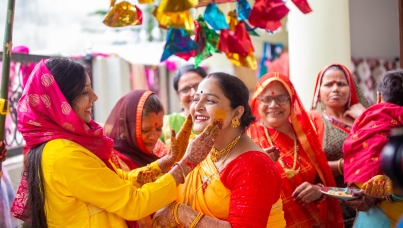

Paradox of urban Indians - victims of war and persecution welcome; refugees not welcome - Ipsos World Refugee Day Global Survey
According to a new global 28-market survey by Ipsos to mark the World Refugee Day on June 20th, 2021, among 19,501 global adults, at least 2 in 3 Urban Indians (66%) endorse providing refuge to those who are victims of war or persecution; at the same time over 2 in 3 (69%), strongly emphasize closing of borders for refugees, stating inability of accommodating more in the country.
“It is a paradox. While Urban Indians want to help those affected by war and persecution, at the same time more refugees are a burden on the limited resources, in a highly populous country like India, where the majority are already steeped in poverty. And more influx of refugees would mean increased burden on already stretched systems,” says Amit Adarkar, CEO, Ipsos India.
Interestingly, providing refuge to those impacted by war is strongly endorsed by global citizens as well (70%) and the other top markets who believe in supporting include Argentina (79%), Italy (79%), Brazil (78%) and Netherlands (78%). And global citizens are polarized in their views about allowing more refugees in their country (50% agree; 43% disagree). Malaysia (82%) and Turkey (75%) are as wary as India of allowing more refugees into their country.
“Seeking asylum is one thing, but en masse refugees are a lot to deal with,” feels Adarkar.
Why are more refugees not welcome?
7 in 10 Indians (72%) believe that most foreigners who want to enter the country on the pretext of being refugees are largely those seeking economic benefits or want to partake of our welfare schemes. Similar viewed is echoed by Turkey (81%), Malaysia (76%), Russia (75%) and Peru (73%). More number of global citizens (62%) too, believe the same. Further, 68% of urban Indians also feel the refugees will easily integrate in the society.
“The concern stems from facial features and looks of refugees next to border towns being similar to Indians, enabling them to merge easily with the locals and then it is not easy to find them and send them back,” adds Adarkar.
3 in 4 in Saudi Arabians (76%) too, echo similar views. While views of global citizens were polarized.
Refugees & Pandemic
During the time of coronavirus, almost 1 in 4 (23%) urban Indians believe we should be more open to accepting more refugees. And 27% urban Indians believe we should allocate more funds for refugees during the pandemic.
“To provide health benefits and provisions during the pandemic to refugees, would need more allocation by the govt,” explained Adarkar.
Technical Note
These are the results of a 28-market survey conducted by Ipsos on its Global Advisor online platform. Ipsos interviewed a total of 19,510 adults, aged 18-74 in the United States, Canada, Malaysia, South Africa, and Turkey, and age 16-74 in 23 other markets between Friday, May 21st and Friday, June 4th, 2021.The sample consists of approximately 1,000 individuals in each of Australia, Belgium, Canada, mainland China, France, Germany, Great Britain, Italy, Japan, Spain, and the United States, and 500 individuals in each of Argentina, Chile, Colombia, Hungary, India, Malaysia, Mexico, the Netherlands, Peru, Poland, Russia, Saudi Arabia, South Africa, South Korea, Sweden, and Turkey.The samples in Argentina, Australia, Belgium, Canada, France, Germany, Great Britain, Hungary, Italy, Japan, the Netherlands, Poland, South Korea, Spain, Sweden, and the US can be taken as representative of their general adult populations under the age of 75.The samples in Brazil, mainland China, Chile, Colombia, India, Malaysia, Mexico, Peru, Russia, Saudi Arabia, South Africa, and Turkey are more urban, more educated, and/or more affluent than the general population. The survey results for these countries should be viewed as reflecting the views of the more “connected” segment of their population.The data is weighted so that each country’s sample composition best reflects the demographic profile of the adult population according to the most recent census data.



